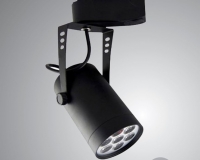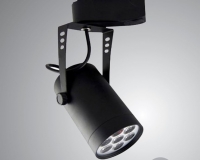Google plans to increase its energy efficiency by converting the infrastructure of Alabama's Widows Creek Power Plant into a new data center, the company announced in June. The new data center will incorporate the latest energy-efficient technologies, including more efficient servers and cooling systems along with a neural network to monitor plant performance. Google for Work Cloud Platforms Vice President Carl Schachter says using more renewable energy is one of the company's top priorities. Currently operating its centers at twice the efficiency of the average data center, Google now gets 35% of the energy that powers its cloud platforms from renewable sources, making for a 65% carbon offset, numbers the company would like to continue optimizing.
Google's efforts represent the computer industry's trend toward "green IT" technology that aims to make computing more environmentally sustainable. As Google's results illustrate, the technology is already paying off in greater energy efficiency, with new innovations constantly emerging and promising to make tomorrow's computing even more eco-friendly.
Cleaning up the Production Process
The manufacturing process expends 62-70% of the total energy used to create and operate a typical laptop during its life cycle, as well as generating 227 to 270 kg of carbon dioxide per unit, a national emissions output comparable to that of driving over half a million cars annually, according to research published in the Journal of Cleaner Production. Contributing researcher Eric Williams says this makes it efficient to focus on cutting energy consumption during the manufacturing process, which is one of the strategies Google is implementing with its repurposing of the Windows Creek Power Plant.

A complementary strategy being adopted by companies such as Carbon Sciences involves manufacturing cloud computing server equipment using graphene, a thin carbon material that leaves less of a footprint than other substances. The material's Nobel Prize-winning discoverer Konstantin Novoselov hopes graphene may replace silicon within a decade.
Increasing Usage Efficiency
Technische Universitat Munchen researchers also see graphene as potentially enabling optical information to be read from quantum computers, expected to revolutionize computing efficiency in the near future. Quantum computers calculate faster than their silicon-based counterparts because they can store more information per bit, a property which physics professor Justin Wells says would also use much less energy than traditional computing devices.
Yahoo has adopted another strategy for making their data centers more efficient; they locate them where outside air can be used to reduce the energy spent on cooling the equipment. Energy Star outlines six other ways to reduce computer energy consumption, including selecting equipment with a high efficiency rating, using sleep mode and benchmarking your energy efficiency. Relying on cloud solutions such as Mozy cloud backup services can also help reduce companies' on-premise energy usage.
Reusing and Recycling Equipment
Williams' study recommended that another way to reduce the amount of energy consumed during the manufacturing process would be to extend the lifetime of equipment so that less creation of new devices is required. Williams' fellow researchers pointed out that laptop materials themselves only account for 10 percent of laptops' carbon emissions, making strategies such as upgrading equipment for reuse more efficient than recycling. The EPA provides guidelines to help decide whether reuse or recycling is a better option in a given case, taking into considerations such factors as data security.







































